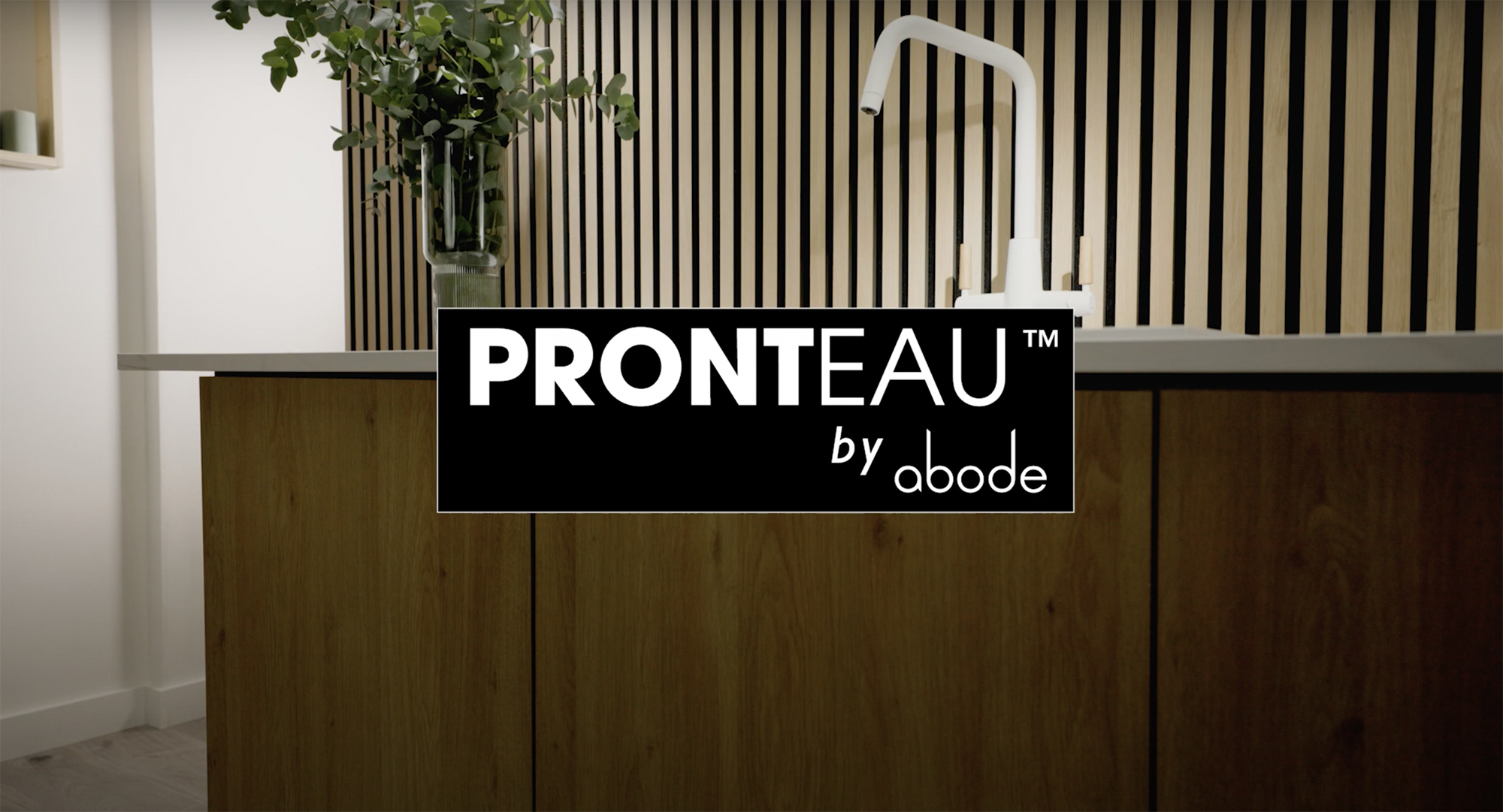At its refitted trade showroom, managing director of Dansani UK Christian Asmussen talks about loyalty, the need for prompt payments and why retailers should stop discounting
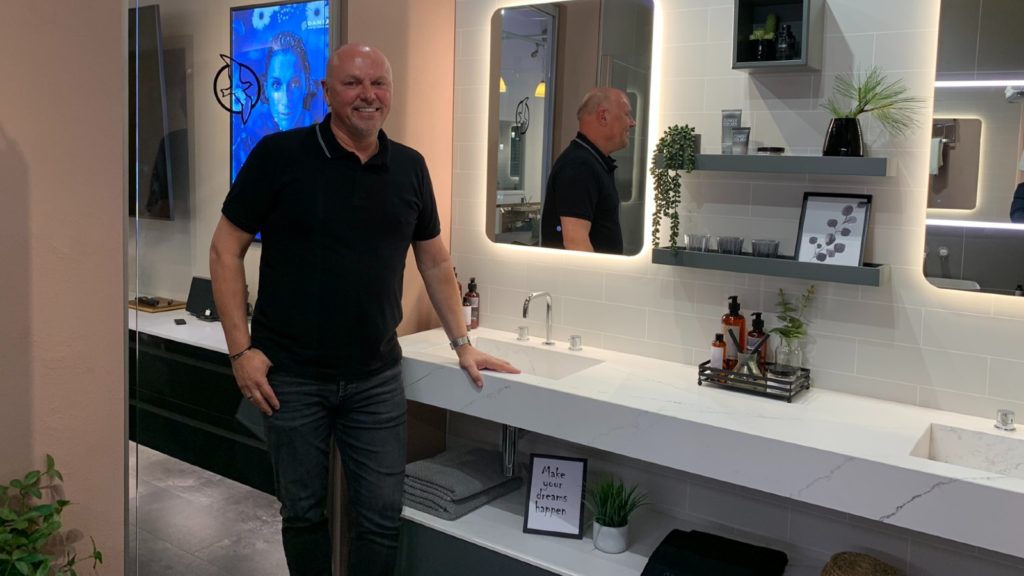
Established in the UK for 22 years, Danish bathroom brand Dansani has called Brighton home for the past decade.
Having recently resigned the lease and refitted its 2,200sq ft trade showroom, managing director of Dansani UK Christian Asmussen says business has been good in 2022.
Sponsored Video
He comments: “There are some good enquiries coming in and there are some good orders coming in. There are fewer orders than last year, but they are much higher value.”
Colour driving sales
Driving its £4 million turnover in UK & Ireland has been mid to high-end furniture and a demand for colour.
Both of which are reflected in the refit of the company’s showroom at Brighton Marina, which boasts 46 displays.
In fact, the UK is the largest market in the Dansani group for coloured furniture, which offers a choice of 2,500 standard, NCS and RAL hues to order.
Causing a stir in sales has also been its mid and high-end furniture, with the majority of its showroom displays reflecting bathrooms with a retail value of £20,000-£25,000.
Most recently the company has added Silestone by Cosentino basins and shower trays to its top-end Calidris range.
Asmussen explains it has provided a look which wasn’t included in the Dansani programme, stating “it’s just a perfect fit”.
In fact, Dansani has recently fulfilled an order for 140 Silestone by Cosentino basins for a central London development and Asmussen hopes contract will be 20% of the company’s turnover by the end of 2023.
Room for growth
However, the UK retail market has proved to be solid business for Dansani and is responsible for its top 4 position in the Dansani group.
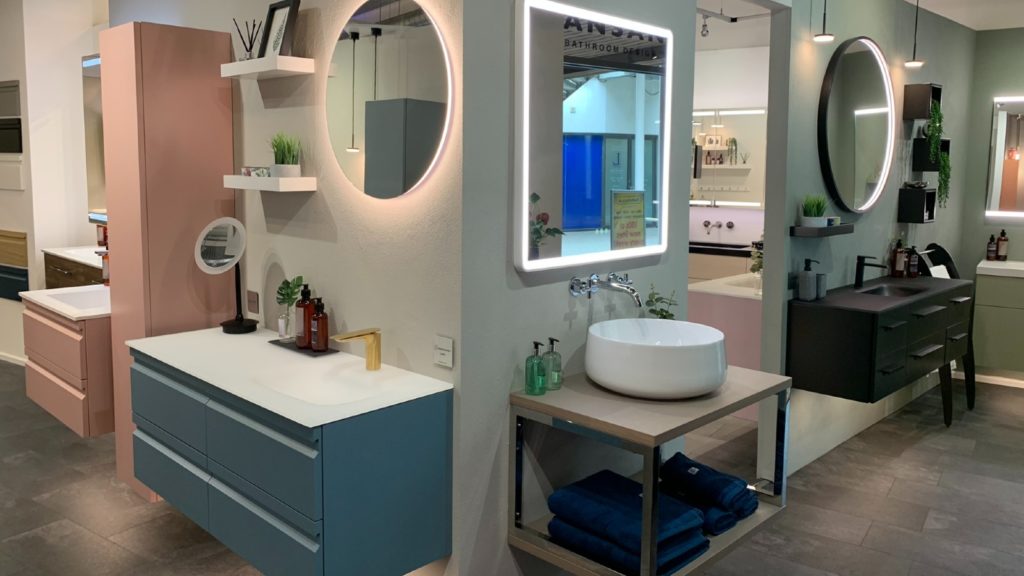
The 2,200sqft showroom features 46 displays, with the majority focusing on the mid to high-end market
Boasting a network of 250 retailers, Asmussen is keen to expand the number of showrooms but not at the expense of them making good profit.
“A good number for me, over the next couple of years, would be between 275 and 300 retailers in total. We don’t need anymore than that.
“That will be a national spread across both markets and they can make good money.”
So what would Asmussen expect from an independent bathroom showroom?
“If a retailer wants to do business with Dansani, then after 21 years, I can categorically state 99% of showrooms that start with one display in the corner is never going to go anywhere. There is not enough focus”, he says.
Asmussen continues: “A good customer, with support both ways, will sell £25,000-£30,000 of furniture a year. It’s one or two sets of furniture a month.
“If you’re not doing that, then I would question is it worth having it on the wall? Our philosophy is we want to help our customers be successful and make more money.”
Retail sales support
Dansani UK doesn’t extend this help to free displays, as Asmussen says “there is no free ride.”
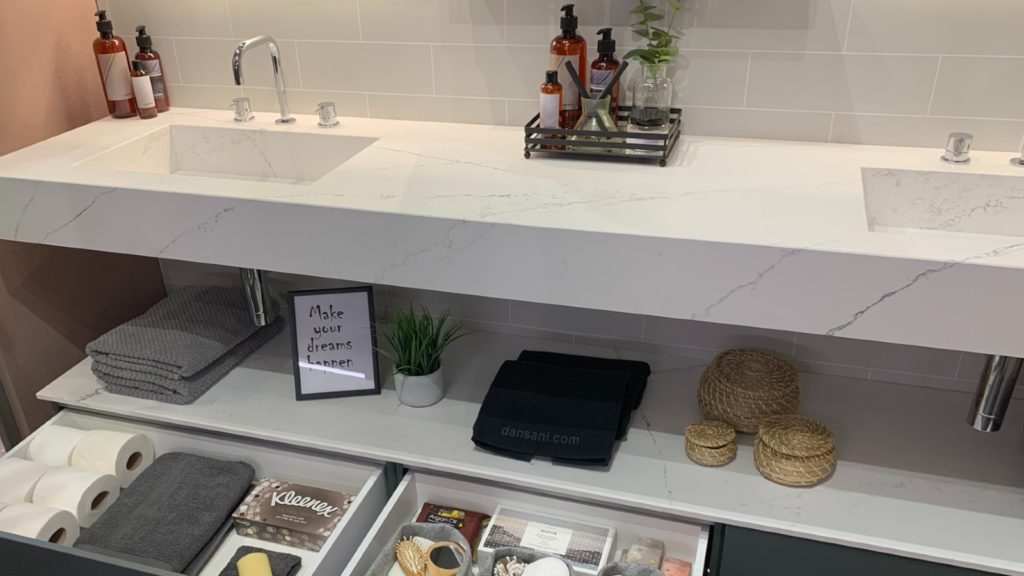
All Dansani trade showroom displays are fitted with extras including lighting and accessorised, which is available as an option for bathroom retailers
He continues: “I want my team to be out on the road, visiting customers, giving them the support and that costs money and that has to be appreciated.”
However, the company does provide training on its products and upselling techniques at its showroom.
“We say getting the product on the wall is just the first step. We need to make sure your team are comfortable working with our products as well as sales tools, and know how to upsell, such as adding lighting underneath and inside the cupboards.”
And he points to the importance of upselling as a way for bathroom retailers to negate consumer demand for discount.
“If they want to reduce the value, you can take off the lighting. But if you can add another £500 or £800 to an order, just think about how much money you could make that year?”
He continues: “Maybe this is also the time to say to our customers stop giving so much away. If you can only sell by giving 30% off, maybe you shouldn’t be selling bathrooms. We don’t believe that’s the future – at all.”
Asmussen encourages bathroom retailers to add as many extras to showroom displays as possible and dress them to make them look aspirational to encourage trade up.
“We have styled a couple of shop-in-shops recently where we have sold dressing the furniture display as an option.”
Countering supply challenges
Like all manufacturers, Dansani has had to counter the issues of Brexit, supply chain challenges and price inflation.
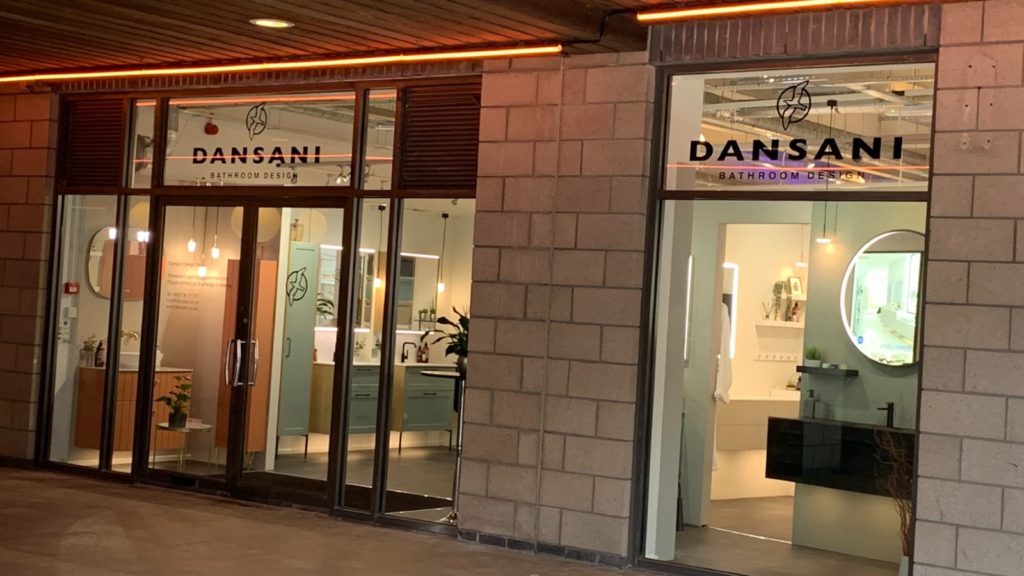
Brighton Marina has been home to Dansani for the past decade
First, the bathroom manufacturer changed the way it invoiced retailers. Asmussen elucidates: “We set up an intercompany strategy, so Dansani Ltd in Brighton buys product from Dansani A/S in Denmark and then we invoice our customers here.
“That means our customers don’t have to worry about the fluctuation of exchange rates, Danish VAT or import papers. We take care of all that.
“We wanted to do that because we could gain some goodwill and market share.”
And during COVID, Dansani used its buying power to increase stock with an additional spend of £600,000 in the first six months.
“Although we have had issues, like everybody has, they have not been on the scale of others and we have been able to gain more sales because we could supply when others couldn’t.
“But we said from day one if somebody who doesn’t buy from us regularly wants help, we will help them if we can but not to the detriment of our existing good customers. Loyalty is very important to us.”
As part of this, he highlights the importance of retailers to pay suppliers on time, adding “The UK is the most challenging of all of our markets. We have had that record for years.
“I think we are probably one of the only suppliers who do start charging interest after 30 days late settlement date.
“We give you good service, we supply you good product and we expect to get paid more or less on time.”
While logistics is still proving a little problematic globally, Dansani has extended its lead time. “We used to be able to get the order out in two weeks but one week was transport. Now transport can be five days or can be eight or nine. So, it is always better to say to your customer two to three weeks”, explains Asmussen.
So what’s next for Dansani? Following its appearance at Kbb Birmingham, can we expect the brand to exhibit at ISH 2023?
“We have been a faithful attendant of ISH for many years, but we have decided as a group we’re not going in 2023.
“It’s not because we don’t want to spend the money but maybe we can spend the money better, elsewhere?”
He concludes: “We came out of 2021 with a good year and we are in a very healthy position. We are here today and we are also going to be here tomorrow, there’s absolutely no doubt about that.”
